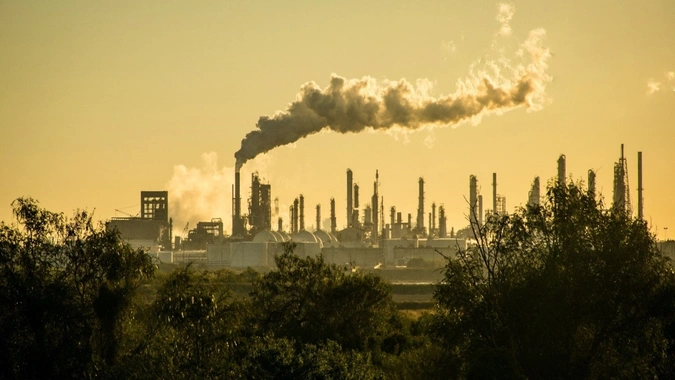
We must tackle apathy around climate action, which has arisen following Russia's invasion of Ukraine.
"There are few things more terrifying than the devastation that climate change brings," said Sir James Bevan, the Chief Executive of the Environment Agency, while speaking at the recent Flood and Coast conference. "It has the potential to destroy our economy, our species, and our planet. And it's happening at a faster rate than we feared."
Sir James's sense of alarm is echoed by a recent report from the Intergovernmental Panel on Climate Change (IPCC), which sheds light on the continued rise in net total anthropogenic greenhouse gases. While emissions dropped by an estimated 6% in 2020 due to the global Covid-19 pandemic, the continued growth of GDP per capita and global population levels has meant that fossil fuel combustion has now risen once more to match 2019's record-breaking output.
These developments and more have meant that human activities have caused approximately 1 ͦ Celsius of global warming since the onset of the industrial revolution. Experts predict this figure will reach 1.5 ͦ Celsius between 2030 and 2050 if we continue to ignore the issue. Despite the valiant efforts of scientists to draw attention to the climate crisis, the response has been slow and often lackluster. While governments have intensified pledges to counteract the effects of global warming, the amount of carbon dioxide in the atmosphere continues to rise, with the planet now heating up to alarming levels.
The UK is one of many countries which, according to the Climate Change Committee, is not on track to meet its 2050 net zero target. Policy gaps in areas such as energy efficiency have thrown progress off course. For example, in April 2022, the government published its Energy Security Strategy, which outlined its pledge to issue new oil and gas licenses in the North Sea despite the fact that the United Nations has warned against the continued use of fossil fuels.
Likewise, questions have been raised over the feasibility of past policy commitments, with the government appearing to fall behind its goal of replacing 600,000 gas boilers with heat pumps by 2028, considering that in 2021 alone, it only managed to replace 55,000.
As present, the grand promises of the UK government to meet its 2050 net zero emissions seem unlikely to materialise, with apathy around climate action on the rise following Russia's invasion of Ukraine and the advent of the cost-of-living crisis. This sense of apathy around climate change action could not have been made more evident than by the deafening quiet at Sir Patrick Vallance's recent emergency climate briefing, which only a mere 70 MPs and peers attended.
There are no simple solutions, yet in the past, we have seen the world come together to tackle other climate-related crises. In the 1980s, acid rain wreaked havoc, leaving lakes lifeless in the United States and forests stripped bare in Europe. Initiatives such as amendments to the Clean Air Act in the U.S. led to the development of a cap-and-trade system, encouraging companies to reduce emissions of sulphur and nitrogen and trade any excess allowances. By decreasing the cap every year, emissions have since dropped dramatically, solving the issue in Europe and North America.
It is clear that in the past, we have been able to drive progress in this space, but in recent weeks, climate and environment efforts have taken a back seat. This is despite the fact that a recent Ipsos poll found that 71% of adults globally believe that climate change is as serious an issue as Covid-19 in the long term.
With attention shifting elsewhere, philanthropic organisations are increasingly being called upon, with foundations such as my own seeking to reverse the climatic effects brought on by the accelerated pace of fossil fuel use by donating to organisations effective in carbon reduction and sequestration and funding campaigns for policy change.
Philanthropic organisations can make a real difference. Nonetheless, without government support, it will be near impossible to achieve our climate targets. To ensure we can continue to protect the planet for future generations, the climate crisis must be brought back to the forefront of the political agenda.
Read the full article here: https://www.entrepreneur.com/en-au/news-and-trends/climate-change-the-forgotten-crisis/434928
